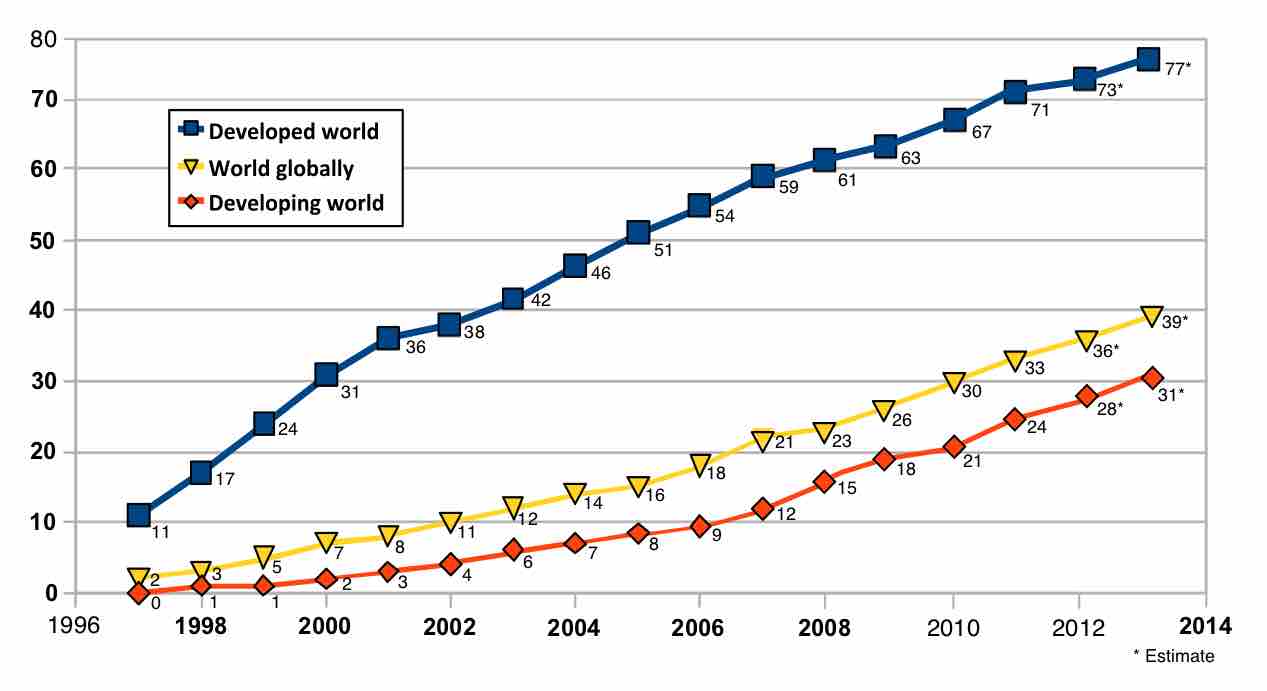The Information Age is a concept that characterizes the current age by the ability of individuals to transfer information freely and have instant access to information that would have been difficult or impossible to access in the past. The idea is linked to the concept of a digital age or digital revolution, as most of this information is instantaneously available online. It carries with it the ramifications of a shift from an industrialized economy to an economy based on the manipulation of information, or an information society.
The Information Age formed by capitalizing on computer microminiaturization advances. The transition spans from the advent of the personal computer in the late 1970s to the Internet reaching a critical mass in the early 1990s, with the public's adoption of the Internet in the two decades following 1990. The Information Age has allowed rapid global communications and networking to shape modern society due to the fast evolution of technology use in daily life.
Though the Internet itself has existed since 1969, it was the invention of the World Wide Web in 1989 by British scientist Tim Berners-Lee and its implementation in 1991 that allowed the Internet to truly became a global network. Today, the Internet has become the ultimate platform for accelerating the flow of information and is the fastest-growing form of media .

Internet Usage
This graph shows the drastic increase in Internet usage, indicative of the pervasiveness of the Information Age.
Concurrently, during the 1980s and 1990s in the United States, Canada, Australia, New Zealand, and Western Europe, there was a steady trend away from people holding Industrial Age manufacturing jobs. An increasing number of people held jobs as clerks in stores, office workers, teachers, nurses, etc. Many argue that jobs traditionally associated with the middle class (assembly line workers, data processors, foremen, and supervisors) are beginning to disappear, either through outsourcing or automation. Individuals who lose their jobs must either move up, joining a group of "mind workers" (engineers, attorneys, scientists, professors, executives, journalists, consultants, etc.), or settle for low-skill, low-wage service jobs.